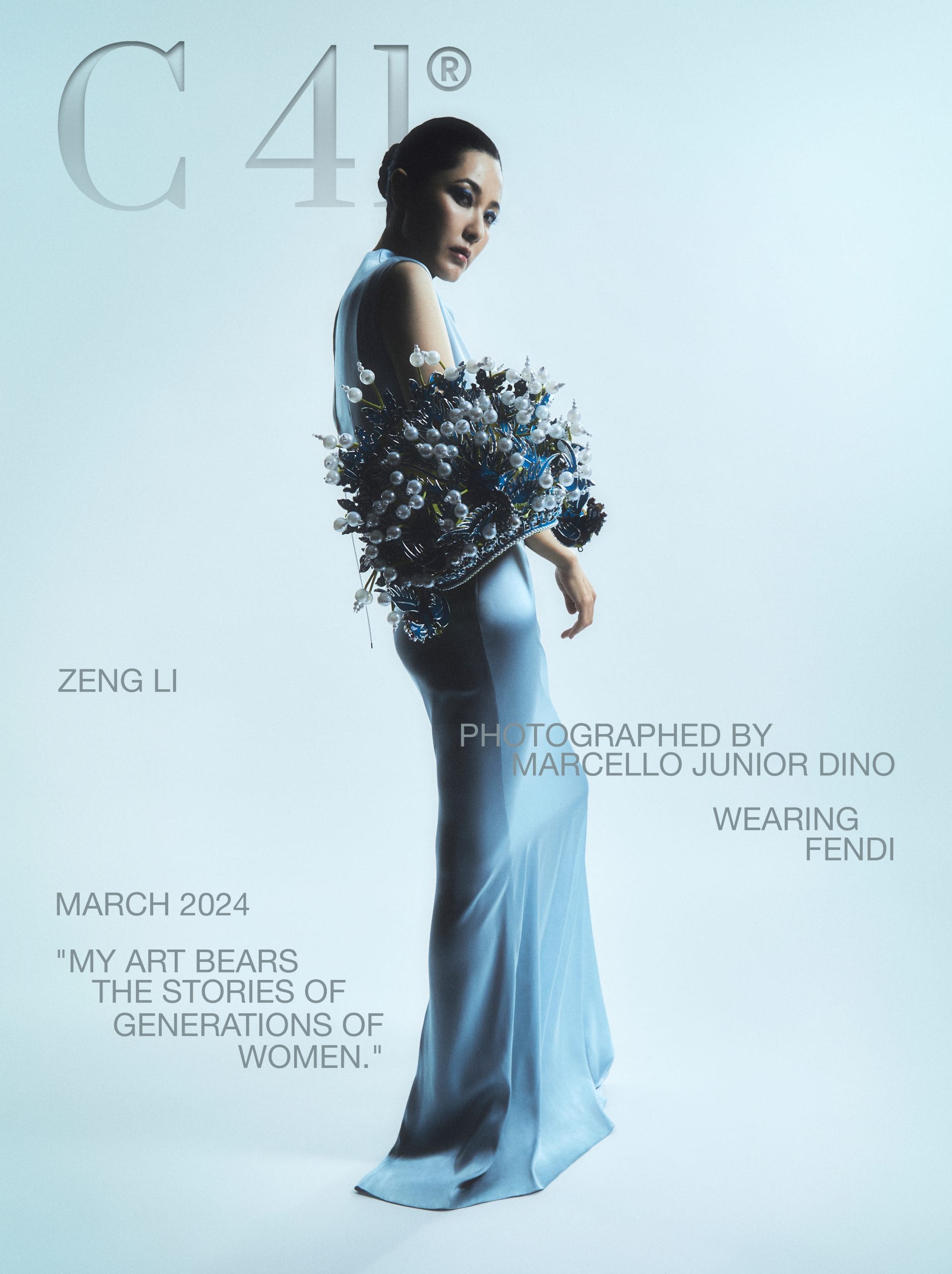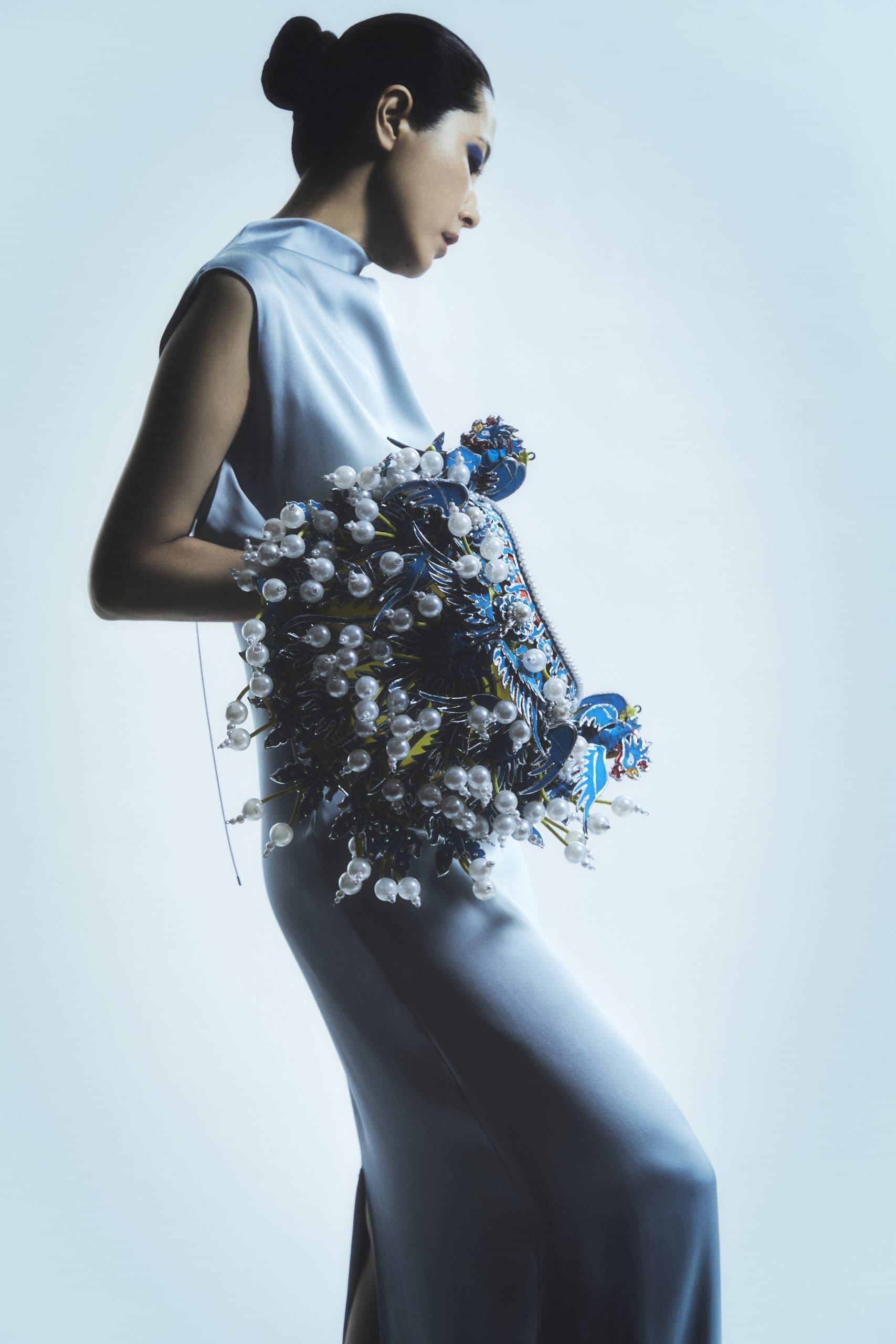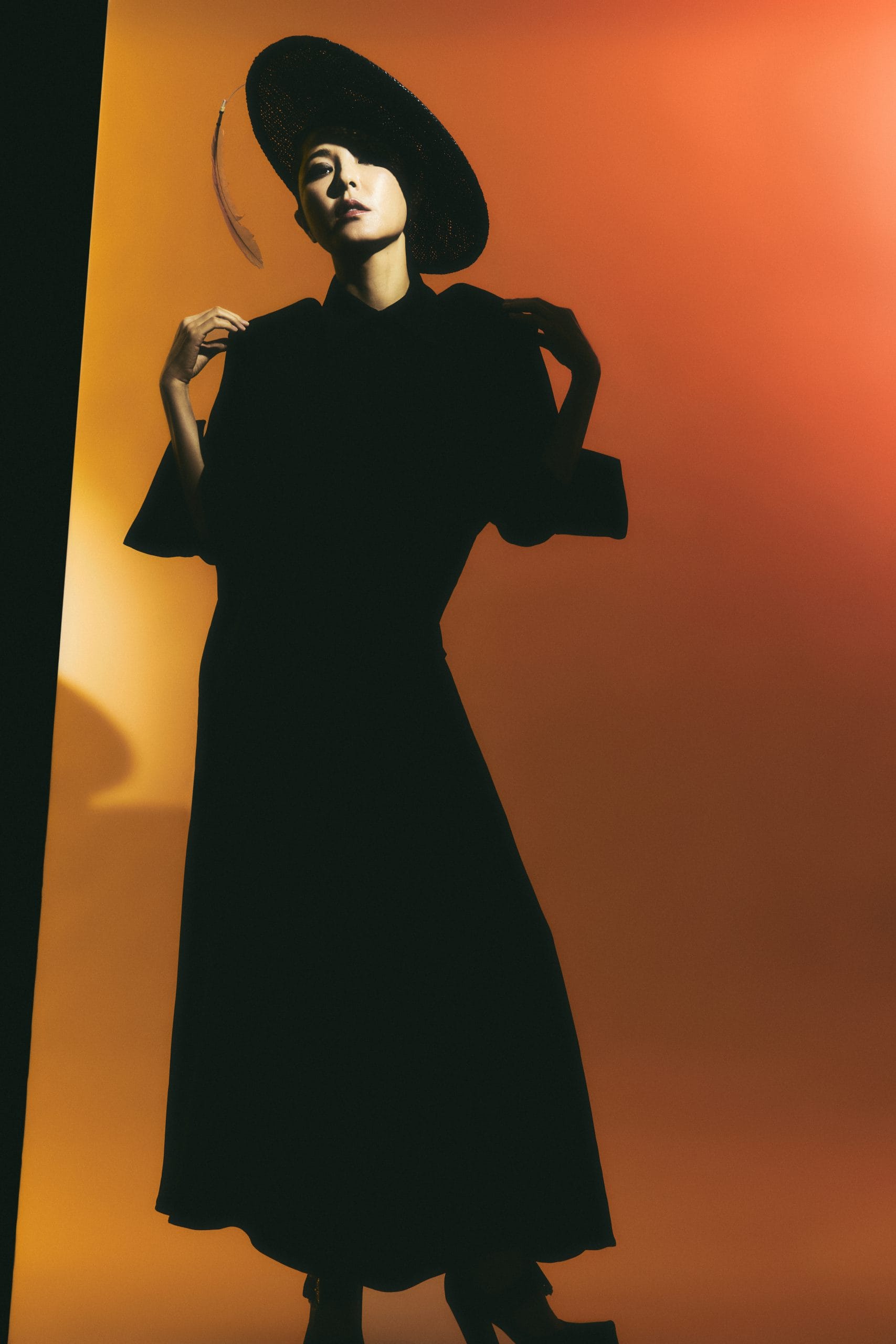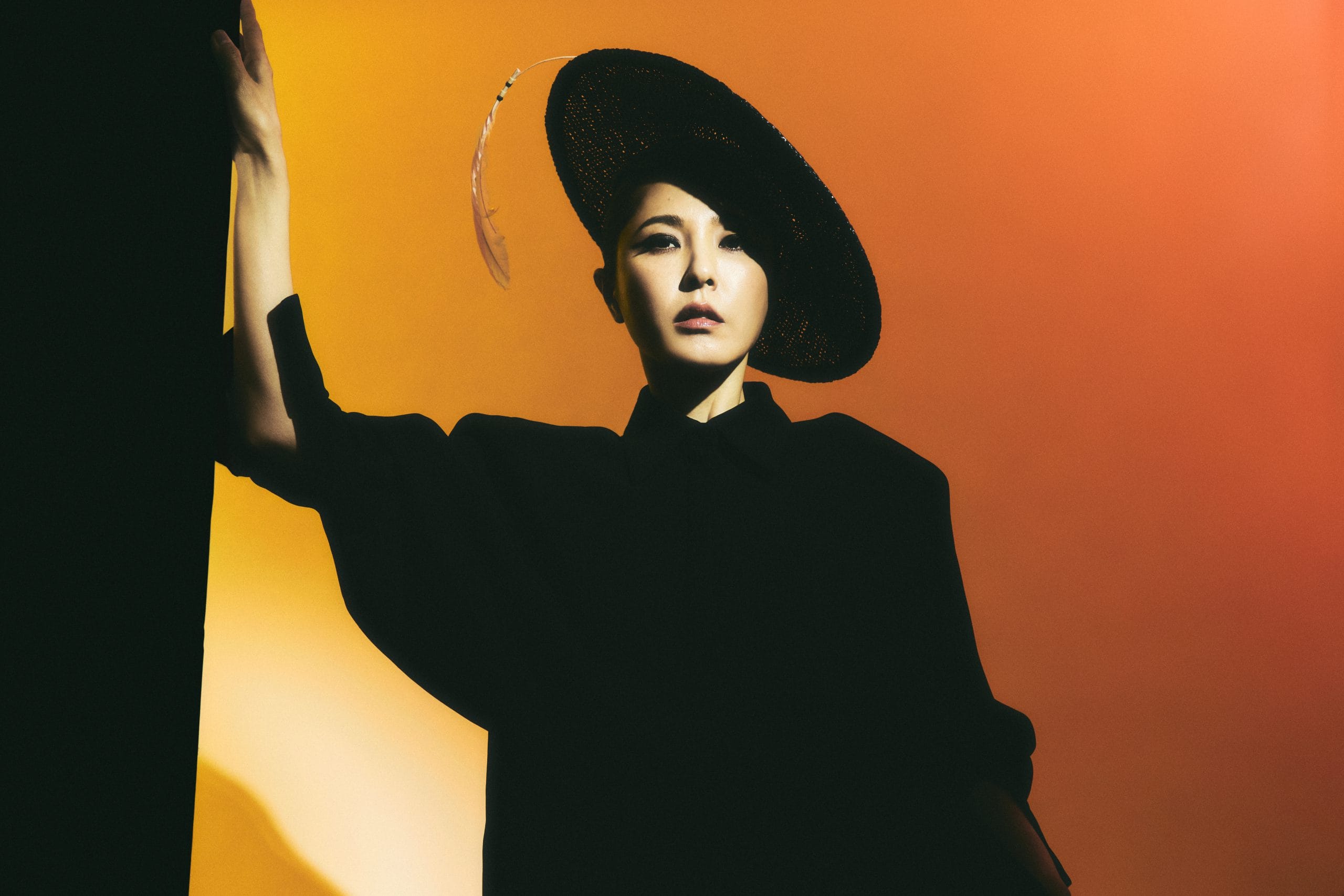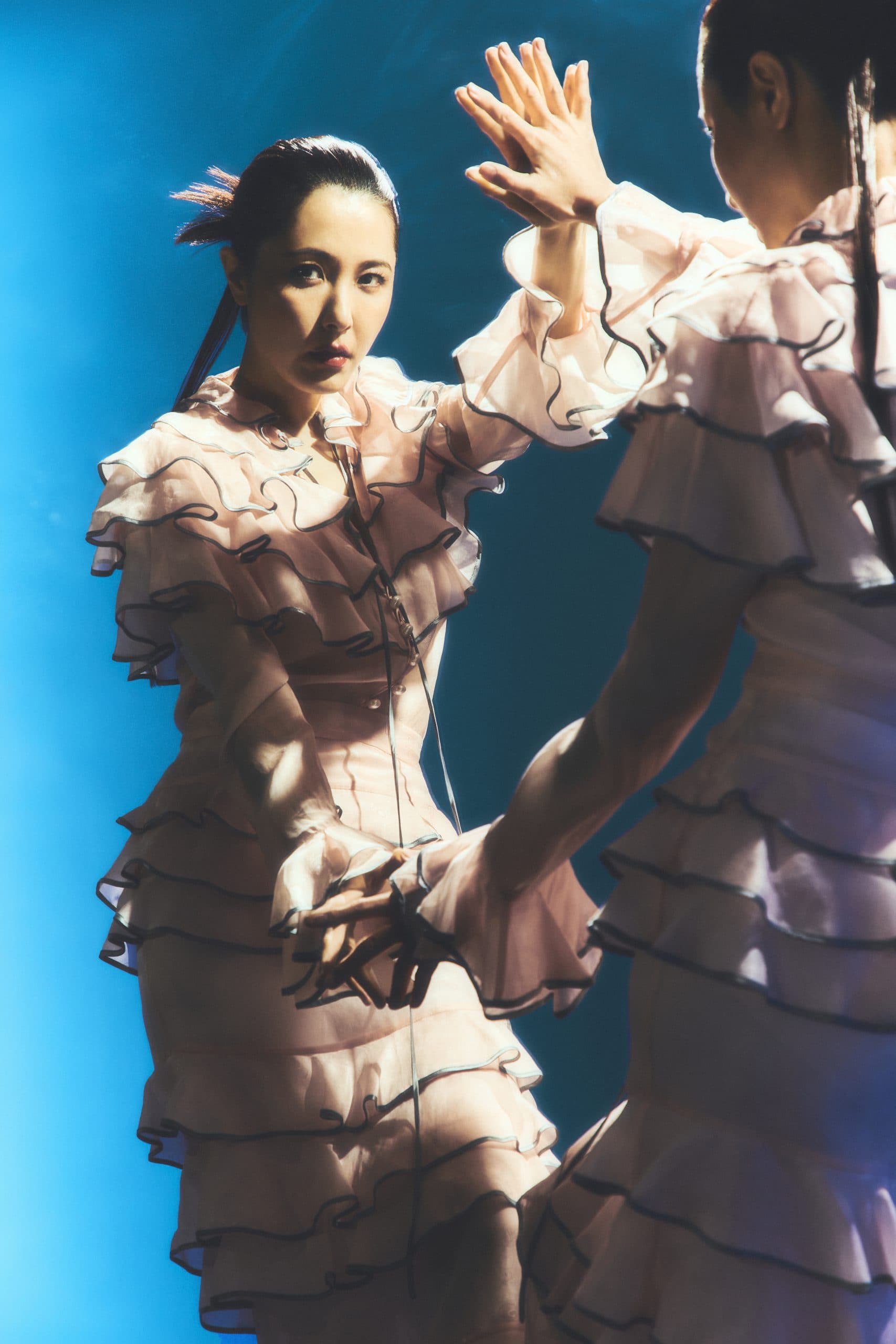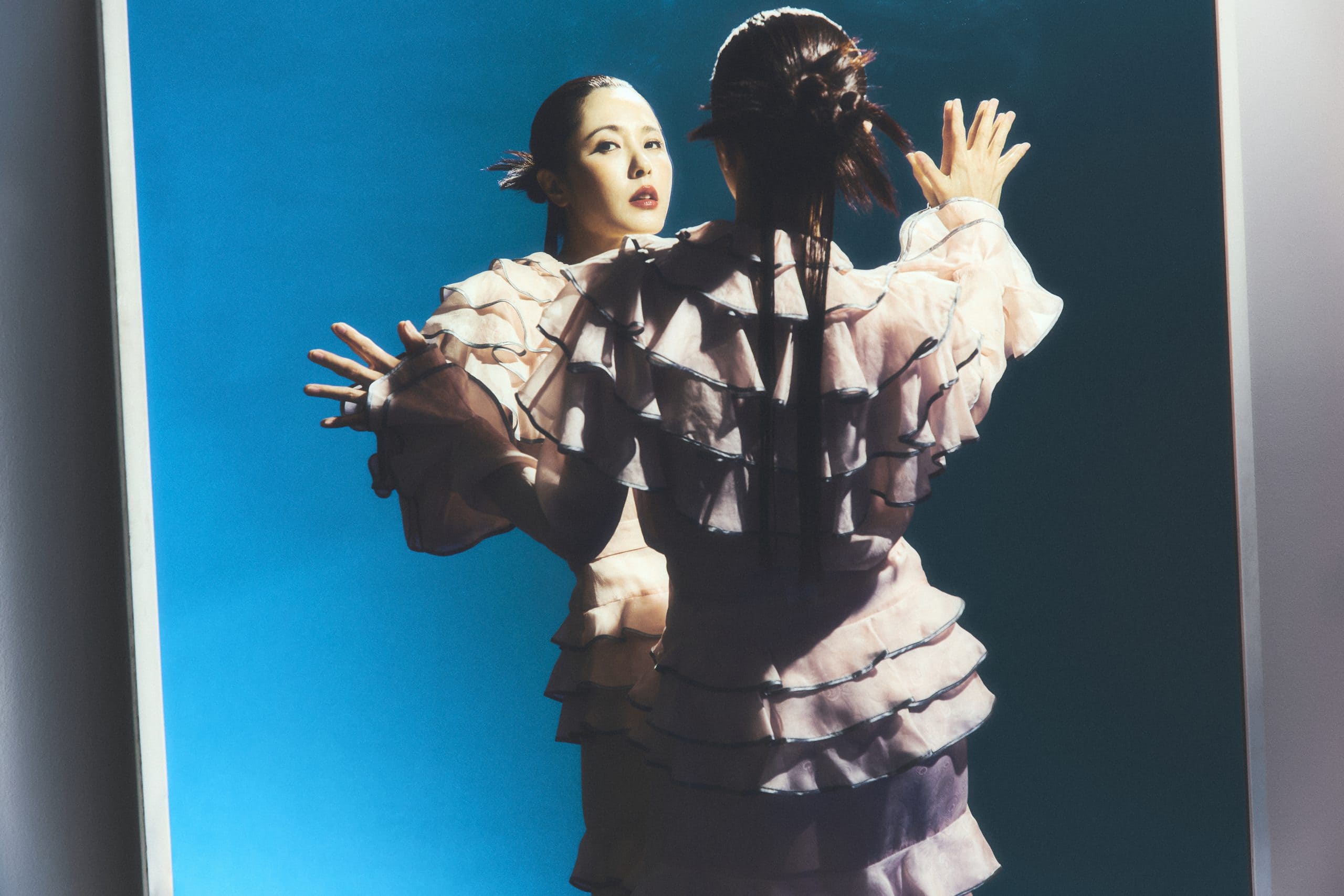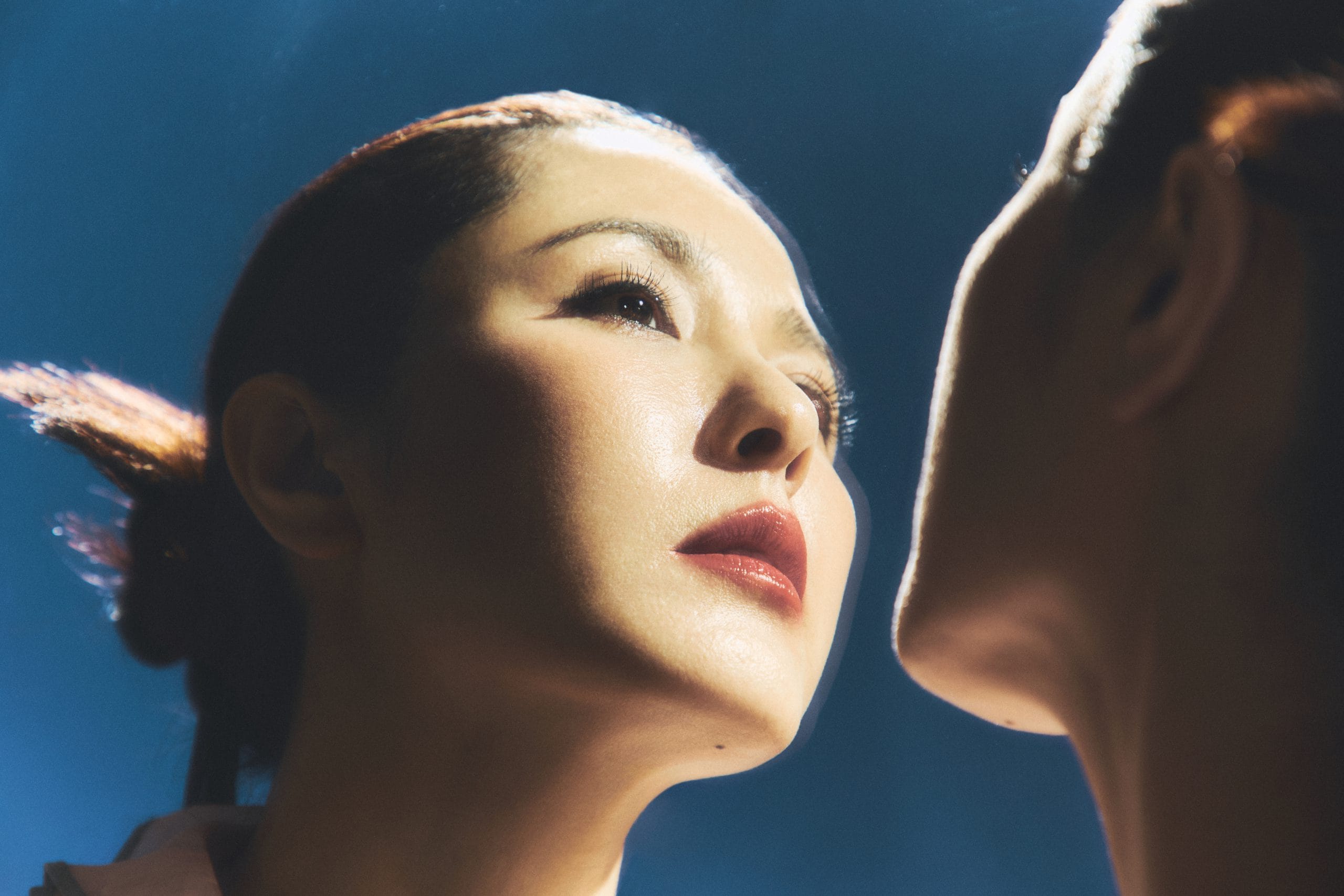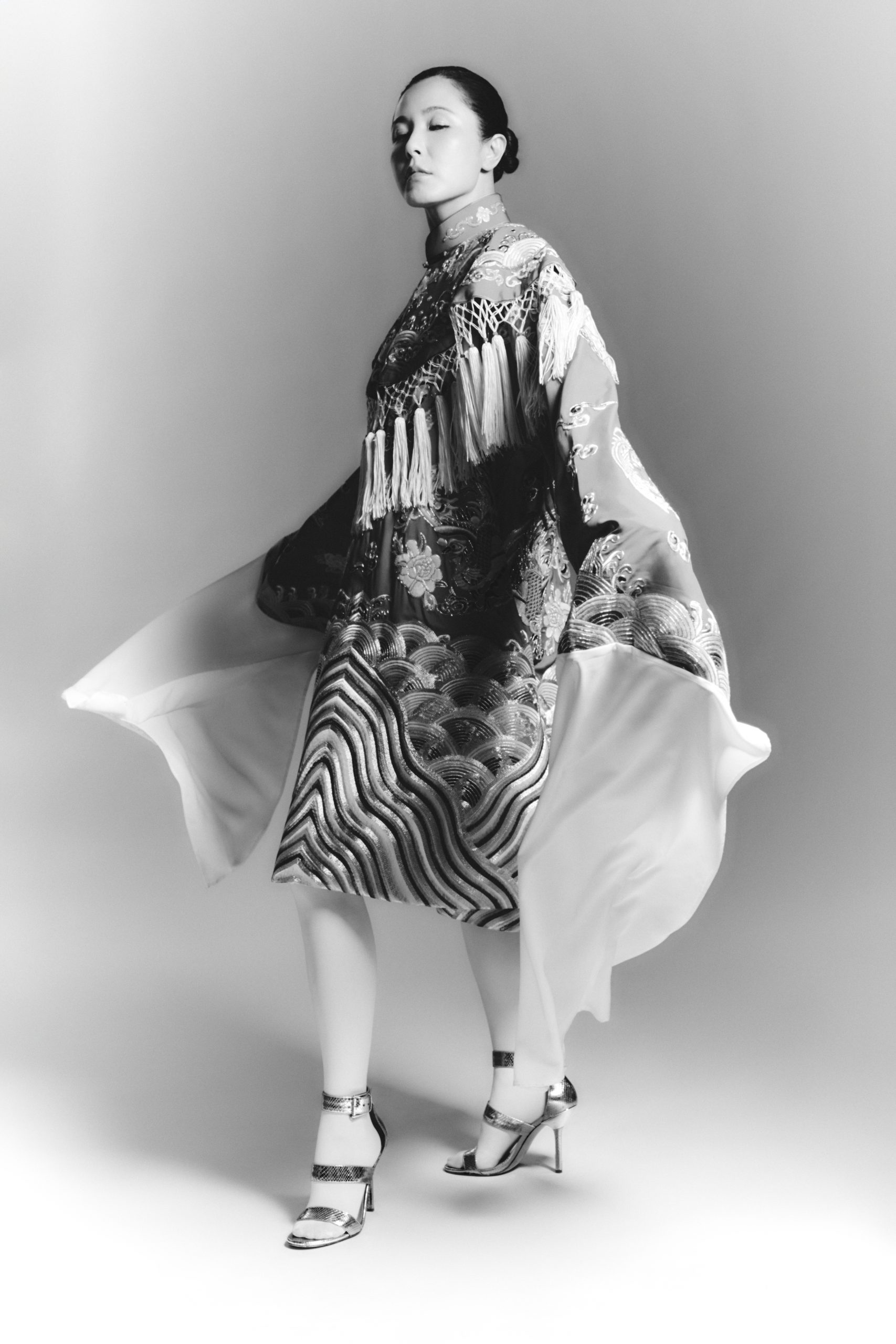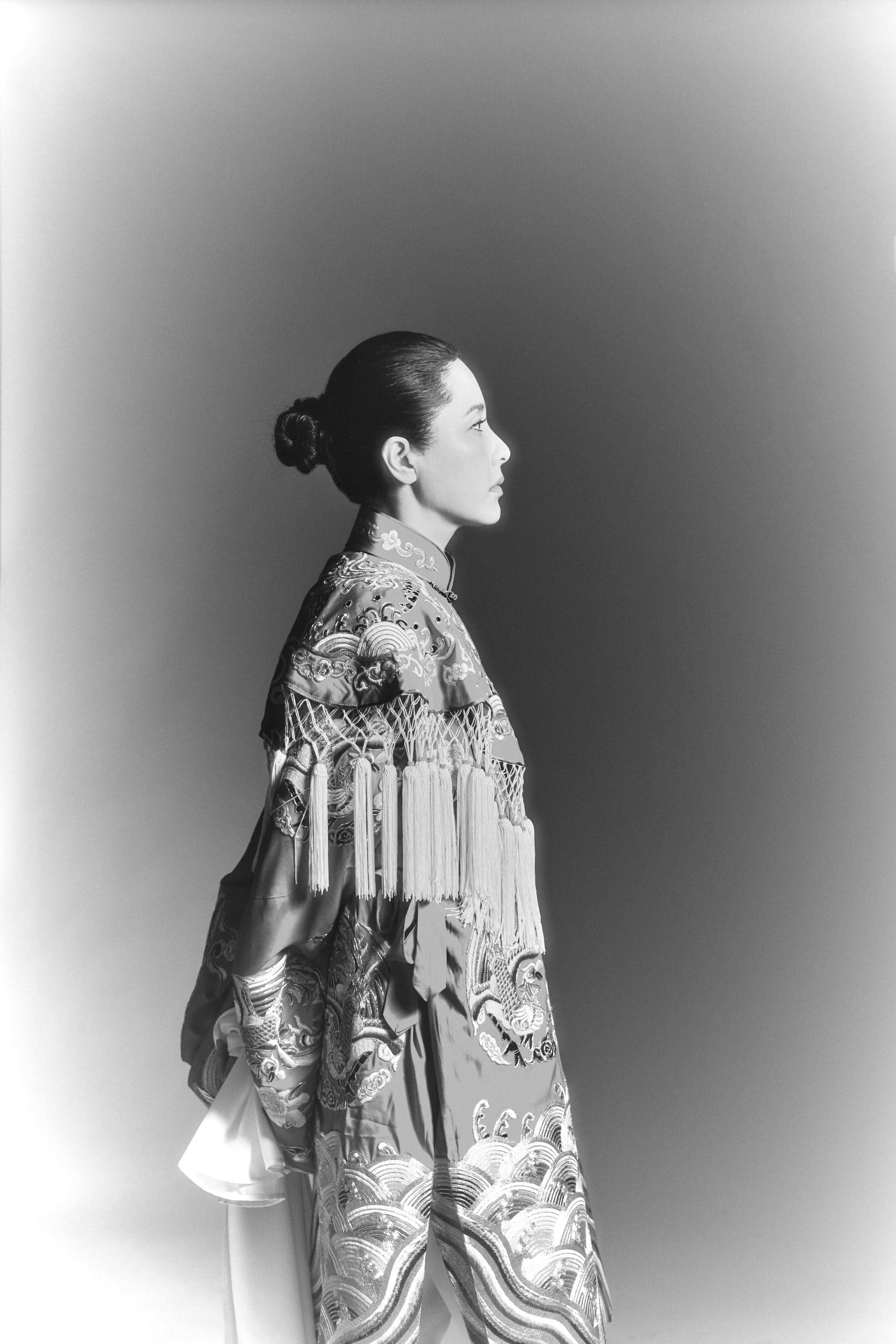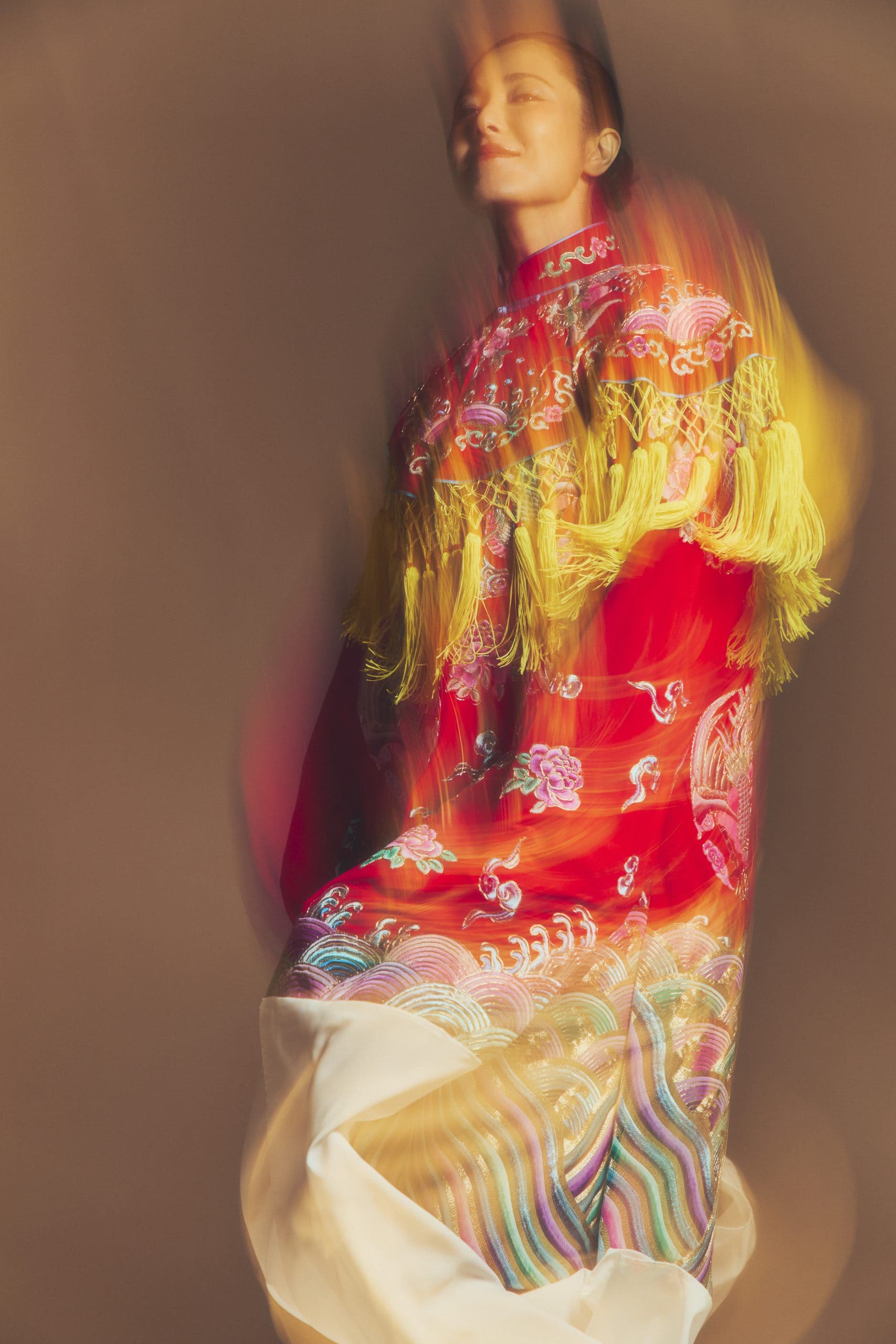Zeng Li is well accustomed to the contemporary era. She amasses millions of followers and viewers across her various social media platforms and navigates the digital world avidly. Her online persona, exuding serenity, confidence and strong femininity, is no different from the Zeng Li who showed up to a studio in Milan this Spring for the realization of the images of this story. A renowned actress and Peking opera artist, she joined C41 to reflect on the current state of #Qingyi (Peking opera) and the role of women in preserving and propelling traditional art forms into the modern era.
From a young age, Zeng Li was drawn to the traditional art forms of her native China. In 1988, after graduating from primary school, she entered the recruitment process of the Chinese Academy of Drama to train as a Peking opera artist. Initially, it was her mother who instilled in her an interest in opera, viewing it as the quintessence of Chinese culture—a form of art that not only preserved her cultural heritage but also honed her physical skills, including singing, recitation, figure, and action, as well as intricate body movements. She then embraced the opportunity presented to her and embarked on a seven-year journey dedicated to the study and mastery of Peking Opera.
“One minute on the stage takes a ten-year practice,” echoes an ancient Chinese proverb. Zeng Li has always lived by the principle of following life’s natural course, yet understanding the inherent rules of life’s processes, which allowed her to endure the precise training and lifestyle that comes with performing Peking Opera.
The performance of traditional Chinese opera requires a high level of professional skills, whether it’s singing, recitation, physical movements, or the expressive power to portray characters on stage. “At that time, I was very young, the learning environment was tough, and my parents were not around. The foundational learning was also quite dull, so I faced significant challenges to my willpower and endurance during that period,” says Zeng Li.
Zeng Li’s trajectory in Qingyi was heavily marked by her already flourishing acting career. “In China, there are many Peking opera performers more talented than I am,” she reflects. “However, my identity as an actor in films and TV dramas brought me more attention.” Her already established reputation represented both a fortune and a responsibility, and she embraced her role as a mediatic person to widespread the artform. “ Whether through variety shows or social media, as long as I can share elements of Peking opera culture, be it the characters or the essence of Peking opera, I am very satisfied,” she expressed.
Throughout her time performing Qingyi, Zeng Li has observed how the artform has adapted and become ingrained in modernity, especially when it comes to women’s roles within the librettos. “In the collection of Peking opera scripts, the proportion of female characters is often higher than that of male characters. However, scripts where all characters are exclusively female are quite rare,” Zeng Li explains.
Only in dramas centered around themes like family, love, and relationships do female characters play a significant role, reflecting the early portrayal of women in realistic family settings. Over time, Zeng Li witnessed a gradual shift, as female characters have evolved to display increased assertiveness, independence, and occasionally controversy. As societal perspectives change, there’s also been a transformation in how inherent ideas about women are portrayed.
The actress sees the role of women in Peking opera well aligned with the principles of the real world, “the awakening and self-discovery, the courage, and the gentleness of women are inherent abilities in opera,” she says. On the stage of Chinese Peking opera, there are numerous shining female figures, including renowned actresses who have passed down their roles through generations. They symbolize the 5,000 years of national culture and represent the spiritual civilization of humanity. “Many women find inspiration in these characters, and I am one of them. I hope that I can also bring about reflection and awakening in more people,” says Zeng Li.
Having transitioned from a Qingyi role to adopting an actor’s identity in film and television, Zeng Li encountered a range of growth environments. She has portrayed diverse female characters with various backgrounds, spanning both ancient and modern settings. Crafting complex and diverse female characters entails selecting roles that defy traditional judgments about women, offering audiences fresh perspectives and opportunities for self-identification. Nevertheless, this has been a challenging task given certain limitations within the industry.
“From a mother returning to her family after the battlefield, to an empress trapped within palace walls yearning for love, and even an infatuated Kabuki carrying numerous secrets, in today’s China, female characters have gradually become more complex, transcending the traditional role of mere decorative figures,” says Zeng Li.
“I look forward to seeing more interesting and complex female characters emerge in the spotlight. I also hope for opportunities to introduce China’s traditional culture to more friends from different countries,” she longs.
